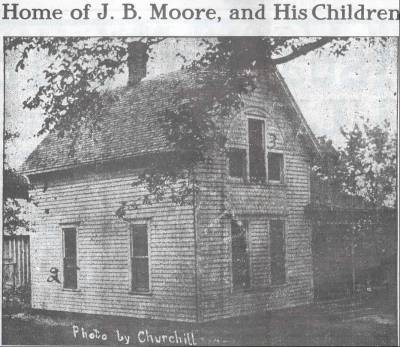 I am a terrible liar. A few years back I participated in a Psychological study on the efficacy of polygraph machines during criminal interrogations. It was a double blind study in which I was instructed either to sneak into a room and steal an object or leave the building altogether without stealing anything. Ten minutes later I was to return and take a polygraph. I got to steal the fake money and ten minutes later, even though the money was phony and I knew there would be no repercussions for lying to the polygraphologist (!) I completely melted down. After the exam results were compiled the professor in charge of the study said “Inspector, you are a terrible liar.”
I am a terrible liar. A few years back I participated in a Psychological study on the efficacy of polygraph machines during criminal interrogations. It was a double blind study in which I was instructed either to sneak into a room and steal an object or leave the building altogether without stealing anything. Ten minutes later I was to return and take a polygraph. I got to steal the fake money and ten minutes later, even though the money was phony and I knew there would be no repercussions for lying to the polygraphologist (!) I completely melted down. After the exam results were compiled the professor in charge of the study said “Inspector, you are a terrible liar.” 
So why bring this up? Turns out this study was in conjunction with The Innocence Project looking at the prevalence of “false positives” in the use of polygraphs. The psychology of false confessions isn’t new. In 1908 Harvard psychology professor Hugo Munsterberg published a series of essays on psychology and crime. He dedicated one essay to “Untrue Confessions” and tried to explain the psychology behind these. He asked; why would a psychologically healthy individual freely confess to a crime they did not commit? Aside from the obvious physical and mental duress caused by investigators there are many instances of confessions being secured without outside influence. Munsterberg mentioned the case of the Boorne brothers who confessed to murdering their brother-in-law, going so far as to describe how they got rid of the body. Trouble was the “murdered” man was very much alive. It is said as many as two hundred people confessed to kidnapping Charles Lindbergh, Jr. from his crib in 1932 and who can forget John Mark Karr’s “confession?”
With regard to the Midwest Murders, in 1917 a preacher from Oklahoma arrived in Red Oak, Iowa with the story of a dying man he couldn’t remember the name of confessing to the Villisca murders four years prior. In 1932 a prisoner in Detroit confessed to killing the Moore family but knew nothing of the Stillinger girls. Another man would confess in 1951 but the most important confession would come from the Rev. Lyn Kelley. My personal opinion, as I’ve said before, is Kelley didn’t do it. I’ve addressed this opinion here. Aside from confessing to the Villisca murders three times, Rev. Lyn Kelley also confessed to sinking the Lusitania. I do not believe Lyn Kelley was physically coerced into to confessing. I believe he fell into the category of Coerced-Internalized False Confessions, in which a weak minded suspect, usually exhausted by long interrogations, is actually convinced by the interrogator they are guilty of the crime. Munsterberg also suggested that a false confession my come from a person who feels guilty about something else, often entirely unrelated to the crime they are accused of. This certainly would have fit Lyn Kelley who was accused of all kinds of perverted behaviors. I believe if Lyn Kelley were given a polygraph today he would fail miserably on any subject asked of him. This makes it very hard to take any confession seriously, whether it was accurate or not. I do believe his confession was his own. In other words, the interrogators didn’t write something down and have him sign it. It is just my opinion the confession was false. Why I believe this I will discuss in my next post.

 The crime scenes in which at least one victim was covered with bed sheets or clothing were: both of the crime scenes in
The crime scenes in which at least one victim was covered with bed sheets or clothing were: both of the crime scenes in 
 As neighbors and doctors began to show up at the Keller home during the early morning hours of June 10, 1913, Ida began to act strangely. In spite of her story of an intruder attempting to kill her entire family, Ida showed no emotion. She was found quietly bathing her daughter’s head with water. Now in my opinion, initial emotional responses to a shocking event are not enough to raise suspicions. Everyone reacts to intense emotional events differently and shock can register in many ways. However Ida would soon pull out the first red flag of the day when she asked a witness about the chances of her husband’s life insurance, through the Modern Woodmen, being paid out. Arthur would be dead before sun rise and Margaret would die later that evening.
As neighbors and doctors began to show up at the Keller home during the early morning hours of June 10, 1913, Ida began to act strangely. In spite of her story of an intruder attempting to kill her entire family, Ida showed no emotion. She was found quietly bathing her daughter’s head with water. Now in my opinion, initial emotional responses to a shocking event are not enough to raise suspicions. Everyone reacts to intense emotional events differently and shock can register in many ways. However Ida would soon pull out the first red flag of the day when she asked a witness about the chances of her husband’s life insurance, through the Modern Woodmen, being paid out. Arthur would be dead before sun rise and Margaret would die later that evening.  On June 12, 1913, a detective from Kansas City named Harry Arthur arrived in Harrisonville at the request of Cass County Sheriff Jim Prater. By this time Ida was under observation but not arrest. On the day of his arrival he requested a private meeting with Ida May. Before supper time that night Detective Arthur had a signed confession from Ida Keller which was given in front of three witnesses. Later in the evening Sheriff Prater’s daughter saw Ida May quietly rocking in a chair in her cell and lightly humming. Some time that night, Ida May began shouting and demanding to see the sheriff. When Prater arrived Ida May recanted the entire confession.
On June 12, 1913, a detective from Kansas City named Harry Arthur arrived in Harrisonville at the request of Cass County Sheriff Jim Prater. By this time Ida was under observation but not arrest. On the day of his arrival he requested a private meeting with Ida May. Before supper time that night Detective Arthur had a signed confession from Ida Keller which was given in front of three witnesses. Later in the evening Sheriff Prater’s daughter saw Ida May quietly rocking in a chair in her cell and lightly humming. Some time that night, Ida May began shouting and demanding to see the sheriff. When Prater arrived Ida May recanted the entire confession.